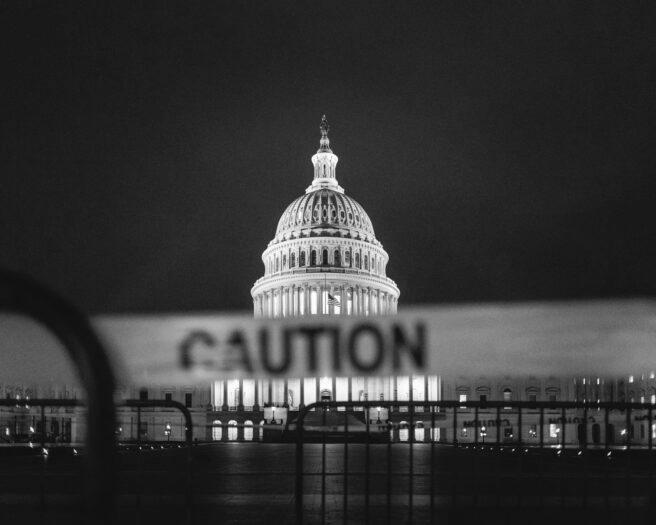An all too familiar countdown once again as we wait to hear the fate of the latest temporary extension to continue funding the government after midnight on Friday, December 20th. Employers should be aware that a shutdown will likely impact processing of immigration cases.
During a shutdown, all but “essential” personnel are furloughed and not allowed to work. This overview outlines how key immigration-related agencies are expected to operate during a shutdown, based on prior experiences and recent guidance from DHS outlining contingency plans and what activities are considered essential (or exempt) from being furloughed.
Employer Action Items to Keep in Mind During a Shutdown
- Ensure timely Form I-9 completion for new hires, even if E-Verify is unavailable.
- Prepare for delays in filing LCAs, PERM applications, and other programs overseen by the Department of Labor.
- Advise employees traveling internationally to confirm visa appointments.
- Maintain clear communication with affected employees about potential impacts.
To understand the potential impact of a shutdown, it is helpful to examine how various agencies, including DHS, USCIS, ICE, and others, might be affected.
Department of Homeland Security (DHS)
U.S. Citizenship and Immigration Services (USCIS)
As a fee-based agency, USCIS operations will largely remain unaffected by a shutdown. However, employers and individuals should anticipate minor delays as personnel may shift priorities or face logistical constraints.
The EB-5 Immigrant Investor Regional Center Program should not be impacted by a shutdown, as it was authorized through September 30, 2027.
USCIS has confirmed that employers may continue to use the new alternate document review process for remote Form I-9 document verification if E-Verify is temporarily unavailable due to a government shutdown.
In the past, when the government reopened, USCIS accepted late I-129 filings provided the petition was submitted with evidence that the primary reason for failing to timely file an extension of stay or change of status request was the government shutdown.
Some programs, however, are not fee based and will be affected by a government shutdown:
- E-Verify, USCIS’ free internet-based system for verifying employment eligibility, will be completely inaccessible during a shutdown. Employers should maintain a plan for delayed case creation and be aware that federal law still mandates timely Form I-9 completion for new hires.
- The Conrad 30 program allows doctors to apply for a J-1 Waiver. USCIS notes that the shutdown only affects the date by which the J-1 doctor must have entered the United States; it is not a shutdown of the Conrad 30 program entirely; and
- The Special Immigrant Religious Worker Program will sunset on December 20, 2024, unless a CR or appropriations package is signed into law before that date.
Immigration and Customs Enforcement (ICE) and Customs and Border Protection (CBP)
ICE, including Homeland Security Investigations (HSI), should be fully operational with only a limited number of non-essential personnel furloughed. CBP will also continue working; they will retain most of their staff as their work is also considered essential to national security at the ports and borders. It is expected that TN and L-1 petitions for Canadian nationals would continue to be adjudicated at the border.
Department of Labor (DOL)
During a shutdown, the Office of Foreign Labor Certification (OFLC) will halt all operations, including the acceptance and processing of applications. This includes filings such as H-1B and E-3 Labor Condition Applications (LCAs), prevailing wage determinations, and PERM applications. Employers relying on these filings should anticipate delays.
OFLC personnel would not be available to respond to e-mail or other inquiries. OFLC’s web-based FLAG system would be inaccessible, and appeals (BALCA) dockets would be placed on hold.
Department of State (DOS)
Since visa and passport operations are fee-funded, they are typically insulated from shutdowns. However, prior government shutdowns have caused interruptions, and individuals traveling internationally should plan for potential delays or disruptions in Consular services.
Department of Justice (DOJ)
Executive Office for Immigration Review (EOIR)
EOIR’s detained docket is typically considered an essential function and would continue to operate. The Immigrant and Employee Rights (IER) staff will be furloughed, but we note that IER offered limited assistance in prior government shutdowns with a skeleton staff answering only urgent emails for one hour daily.
Seyfarth Shaw’s Global Immigration and Mobility team will continue to monitor this evolving situation. Our team is available to provide tailored advice and solutions to help your organization navigate the challenges of a government shutdown. If you have any questions, please reach out to your contact person at Seyfarth Shaw LLP. We will be happy to address your questions.
“With approximately 900 lawyers across 17 offices, Seyfarth Shaw LLP provides advisory, litigation, and transactional legal services to clients worldwide.”
Please visit the firm link to site






